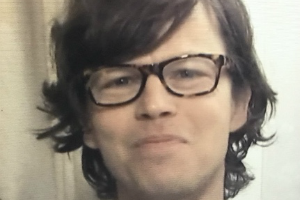
I’m a GP in Oxford and in October 2017 was diagnosed with severe aortic regurgitation. It came as rather a surprise, as my cardiologist found out as he listened to my expletive-laden response to his diagnosis. I have been on the waiting list for surgery since then and was vastly relieved when in December I heard of my operation date in January.
My urgent surgery on the 3 January 2018 was cancelled when I called in at 10am on the morning of admission. It’s difficult to describe the sudden sense of loss, disappointment and emptiness that I felt. The bed coordinator was apologetic, as was the cardio-thoracic secretary. I was nice to them both, of course. It wasn’t their fault but it had come as a surprise, even for someone who works in the NHS every day.
I thought I was on the urgent list and was sure I had been told that I have severe aortic regurgitation. I really did not know what to do with myself. I had packed my bag for a week away in hospital, explained to my bemused three-year-old daughter about my impending absence and mentally prepared to be away from work for six to eight weeks. Naturally the practice and my colleagues have been very supportive, but this was going to be very disruptive for them too. I called work and said I would be in the next day. I felt bad that I had had to take the day off for literally no reason, and worse that I didn’t quite feel up to rushing into work on the day of my cancellation to help out the team.
I think as a doctor in the NHS we are trained from an early stage to soak up punishment, not to complain and to always carry on. But with my patient’s brain I idly wondered how other people might be coping with similarly disorientating news, all over the UK. About how they might be thinking how unfair this was, and what would they do now? Lives put on hold, terrible feelings of uncertainty, resignation and finally acceptance, all over the country.
It’s quite difficult to describe the strangled sense of anger, disappointment and impotence as I watched Jeremy Hunt on the news that night
Then I thought, it’s not just doctors; the British people are also trained to soak things up, to be phlegmatic and uncomplaining. There would be people far worse off than I, who would be even more devastated. After such news they must both love and hate the NHS at the same time. Nevertheless, the NHS is so beloved that it would never cross their minds that the government would deliberately underfund it for the past seven years. Some people might think it’s pretty decent of them to apologise for all the disruption though, and that the government to their credit are forward planning for a winter crisis.
The fact of course is that they are not, that this situation is entirely avoidable and completely, completely down to consistent underfunding. Doctors and the Kings Fund predicted it, even the head of NHS England predicted it. It’s quite difficult to describe the strangled sense of anger, disappointment and impotence as I watched Jeremy Hunt on the news that night. I’m not sure how much more short-notice my surgery cancellation could have been, and yet here my ultimate boss telling me that this was being done to avoid such an occurrence.
I was back to work the next day and firmly have my game face back on, but I can’t deny it’s been disruptive and upsetting. I’m determined not to let it compromise the care I give my patients and commitment to the NHS. I am sanguine, but waiting hopefully for another appointment. I understand that this situation may well occur again.
In that circumstance I look forward to a time when the generic supportive apology from my health secretary and Prime Minister will be replaced by sustained hard investment in the NHS. Platitudes, cancellations and broken promises will not save or improve it. And yet, as many commentators have already commented, perhaps that is the point.
Dr David Triffitt is a GP in Oxford

















